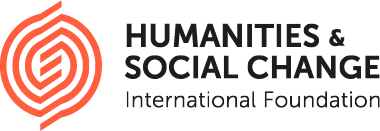 This workshop, the third in a series on the future of artificial intelligence, will focus on the impact of artificial intelligence on society, specifically on language-based technologies at the intersection of AI and ICT (henceforth ‘Artificially Intelligent Communications Technologies’ or ‘AICT’) – namely, speech technology, natural language processing, smart telecommunications and social media. The social impact of these technologies is already becoming apparent. Intelligent conversational agents such as Siri (Apple), Cortana (Microsoft) and Alexa (Amazon) are already widely used, and, in the next 5 to 10 years, a new generation of Virtual Personal Assistants (VPAs) will emerge that will increasingly influence all aspects of our lives, from relatively mundane tasks (e.g. turning the heating on and off) to highly significant activities (e.g. influencing how we vote in national elections). Crucially, our interactions with these devices will be predominantly language-based.
This workshop, the third in a series on the future of artificial intelligence, will focus on the impact of artificial intelligence on society, specifically on language-based technologies at the intersection of AI and ICT (henceforth ‘Artificially Intelligent Communications Technologies’ or ‘AICT’) – namely, speech technology, natural language processing, smart telecommunications and social media. The social impact of these technologies is already becoming apparent. Intelligent conversational agents such as Siri (Apple), Cortana (Microsoft) and Alexa (Amazon) are already widely used, and, in the next 5 to 10 years, a new generation of Virtual Personal Assistants (VPAs) will emerge that will increasingly influence all aspects of our lives, from relatively mundane tasks (e.g. turning the heating on and off) to highly significant activities (e.g. influencing how we vote in national elections). Crucially, our interactions with these devices will be predominantly language-based.
Despite this, the specific linguistic, ethical, psychological, sociological, legal and technical challenges posed by AICT (specifically) have rarely received focused attention. Consequently, the workshop will examine various aspects of the social impact of AICT-based systems in modern digital democracies, from both practical and theoretical perspectives. By doing so, it will provide an important opportunity to consider how existing AICT infrastructures can be reconfigured to enable the resulting technologies to benefit the communities that use them.
Speakers
Maria Luciana Axente (Pricewaterhouse Coopers)
Shauna Concannon (University of Cambridge)
Sarah Connolly (UK Department for Digital, Culture, Media & Sport)
Ella McPherson (University of Cambridge)
Trisha Meyer (Free University of Brussels – VUB)
Jonnie Penn (University of Cambridge)
The workshop is organised by Giving Voice to Digital Democracies, a research project that is part of the Centre for the Humanities and Social Change, Cambridge and funded by the Humanities and Social Change International Foundation.
Giving Voice to Digital Democracies explores the social impact of Artificially Intelligent Communications Technology – that is, AI systems that use speech recognition, speech synthesis, dialogue modelling, machine translation, natural language processing and/or smart telecommunications as interfaces. Due to recent advances in machine learning, these technologies are already rapidly transforming our modern digital democracies. While they can certainly have a positive impact on society (e.g. by promoting free speech and political engagement), they also offer opportunities for distortion and deception. Unbalanced data sets can reinforce problematical social biases; automated Twitter bots can drastically increase the spread of malinformation and hate speech online; and the responses of automated Virtual Personal Assistants during conversations about sensitive topics (e.g. suicidal tendencies, religion, sexual identity) can have serious consequences.
Responding to these increasingly urgent concerns, this project brings together experts from linguistics, philosophy, speech technology, computer science, psychology, sociology and political theory to develop design objectives for the creation of AICT systems that are more ethical, trustworthy and transparent. These technologies will have the potential to affect more positively the kinds of social change that will shape modern digital democracies in the immediate future.
Please register for the workshop here.
Queries: Una Yeung (uy202@cam.ac.uk)
Image by Metamorworks/Shutterstock.com
